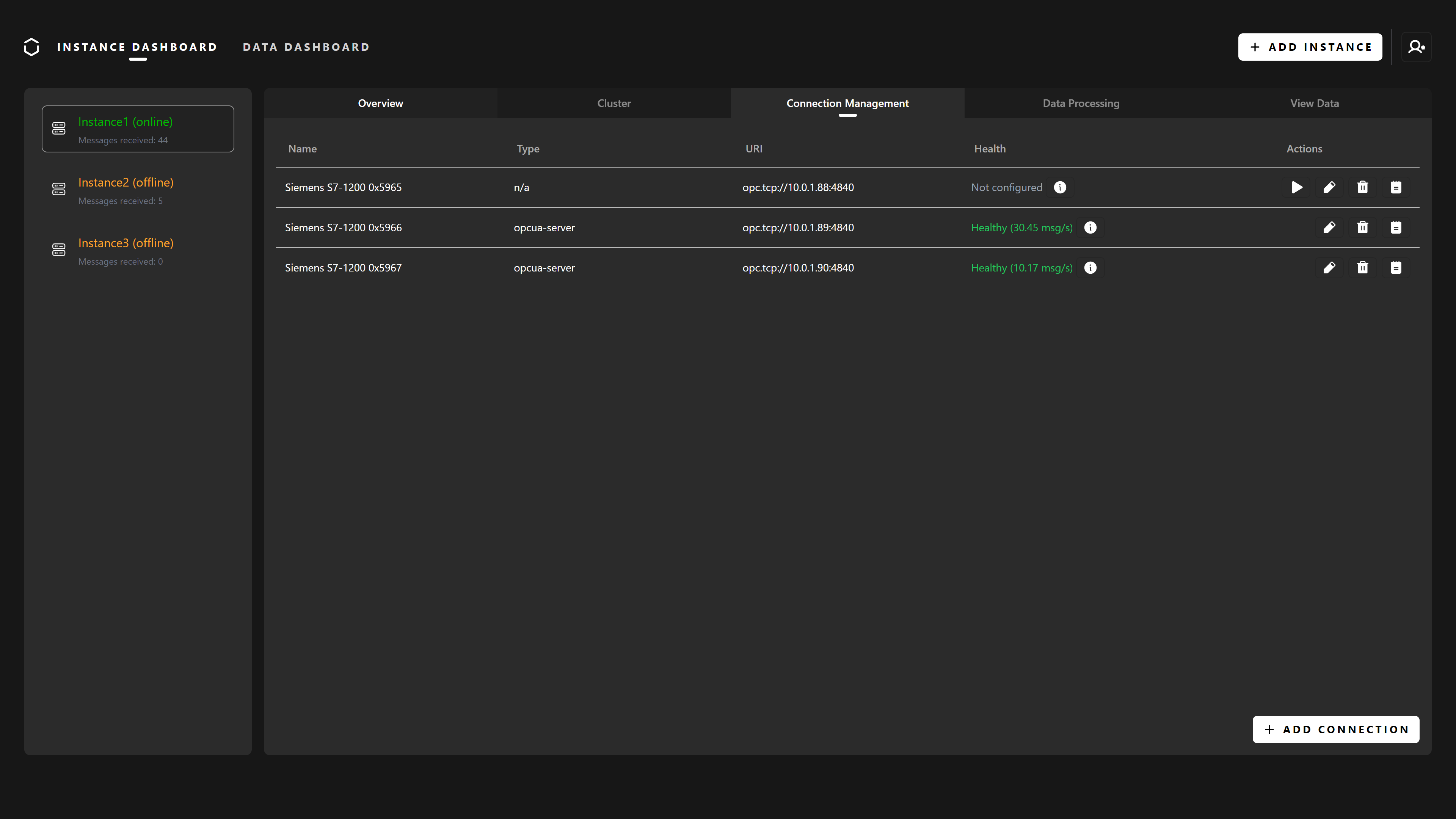Benthos UMH
4 minute read
Benthos is a stream processing tool that is designed to make common data engineering tasks such as transformations, integrations, and multiplexing easy to perform and manage. It uses declarative, unit-testable configuration, allowing users to easily adapt their data pipelines as requirements change. Benthos is able to connect to a wide range of sources and sinks, and can use different languages for processing and mapping data.
Benthos UMH is a custom extension of Benthos that is designed to connect to OPC-UA servers and stream data into the Unified Namespace.
When should I use it?
OPC UA is a communication protocol coming from the OT industry, so integration with IT tools is necessary to stream data from an OPC UA server. With Benthos UMH, you can easily connect to an OPC UA server, define the nodes you want to stream, and send the data to the Unified Namespace.
Furthermore, in our tests, Benthos has proven more reliable than tools like Node-RED, when it comes to handling large amounts of data.
What can I do with it?
Benthos UMH offers some benefits, including:
- Management Console integration: Configure and deploy any number of Benthos UMH instances directly from the Management Console.
- OPC-UA support: Connect to any OPC-UA server and stream data into the Unified Namespace.
- Report by exception: By configuring the OPC-UA nodes in subscribe mode, you can only stream data when the value of the node changes.
- Per-node configuration: Define the nodes you want to stream and configure them individually.
- Broad customization: Use Benthos’ extensive configuration options to customize your data pipeline.
- Easy deployment: Deploy Benthos UMH as a standalone Docker container or directly from the Management Console.
- Fully open source: Benthos UMH is fully open source and available on Github.
How can I use it?
With the Management Console
The easiest way to use Benthos UMH is to deploy it directly from the Management Console
Currently, only OPC-UA data sources can be configured from the Management Console. To use other data sources, you must deploy Benthos UMH in standalone mode or use Node-RED.
You first have to add a new connection to your OPC-UA server from the Connection Management tab.
Afterwards, you can initialize the connection by pressing the Play button next to the connection. Select the correct authentication method and enter the OPC-UA nodes you want to stream.
Currently, the only method supported for configuring OPC-UA nodes is by specifying a YAML file. You can find an example file below:
nodes:
- opcuaID: ns=2;s=Pressure
enterprise: pharma-genix
site: aachen
area: packaging
line: packaging_1
workcell: blister
originID: PLC13
tagName: machineState
schema: _historian
Mandatory fields are opcuaID, enterprise, tagName and schema. opcuaID
is the NodeID in OPC-UA and can also be a folder (see README
for more information). The remaining components are components of the resulting
topic / ISA-95 structure (see also our datamodel). By default,
the schema will always be in _historian, and tagName is the keyname.
Standalone
You can manually deploy Benthos UMH as part of the UMH stack by using the provided Docker image and following the instructions in the README.
This way, you have full control over the configuration of Benthos UMH and can use any data source or sink supported by Benthos, along with the full range of processors and other configuration options.
Read the official Benthos documentation for more information on how to use different components.
What are the limitations?
While Benthos is great at handling large amounts of data, it does not allow for the same level of flow customization as Node-RED. If you need to perform complex data transformations or integrate with other systems, you should consider using Node-RED instead.
Additionally, the Management Console currently only supports deploying Benthos UMH with OPC-UA data sources. If you want to use other data sources, you must deploy Benthos UMH in standalone mode or use Node-RED.
Where to get more information?
- Learn more about Benthos UMH in the Github repository.
- Explore the Data Model.
- Confront these features with Node-RED.
